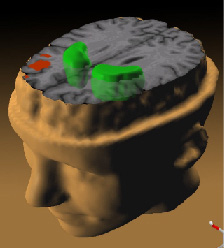 Recent newsletters have focused on how to identify intentional / unintentional lies – misstatements made by witnesses, claimants and / or applicants for employment. Enjoying one-on-one interaction and being a student of human behavior are key pre-requisites to success.
Recent newsletters have focused on how to identify intentional / unintentional lies – misstatements made by witnesses, claimants and / or applicants for employment. Enjoying one-on-one interaction and being a student of human behavior are key pre-requisites to success.
Advance preparation and question planning is also an essential ingredient to this process. This month and next month’s newsletter will go beyond “Preparation 101.” These tips will help you dig down further than usual and thus prepare for that special deposition, witness interview, claim’s statement under oath or key employee interview.
Routine time constraints make it unrealistic to thoroughly prepare for each interview, and that is why it is particularly important to be schooled in lie detecting. Visual identification of behavior, recognition of verbal cues and having the ability to recognize written misrepresentations can help determine truthfulness when you do not know the answers to the questions before they are asked.
When you can allocate time for thorough preparation either take the following steps yourself or vendor the work out to a qualified investigative or pre-employment screening service:
A thorough public records inquiry should be conducted.
- Take steps to determine if the individual has a criminal background and if he / she has been involved in civil litigation. Most interviewers will ask the question without knowing the answer beforehand. If empowered with this data, more effective question shaping can take place.
- Best practice for conducting a criminal / civil record inquiry is to run a thorough address history back to age 18. Thereafter, conduct county and state criminal /civil record checks in each jurisdiction. Certain restrictions apply to pre-employment screening under the Federal Credit Reporting Act (FCRA); however, federal law does not impose a time limit on the extent of criminal convictions.
- Conduct a driving record check. The Federal Bureau of Investigation is the only repository for nationwide criminal records, and outside of law enforcement, discreet FBI record checks are prohibited. To supplement inquiries described under items a & b and to increase thoroughness, check an individual’s driving record. There is interstate sharing of driving records among almost all 50 states. So if someone was convicted of drunk driving or was involved in an accident where criminal charges were filed, you would not know about the event unless it occurred in that person’s home state. In other words, if I resided in Michigan and Wisconsin all my life but was convicted of driving under the influence and possession in Florida, the criminal conviction would go undiscovered unless one knew to check the state criminal record in Florida. If you take the time to check the person’s driving record, you would learn about the event through his home state Secretary of State or Department of Motor Vehicles. Again, this empowers the deposition taker, the interviewer and / or the Human Resource Professional with relevant information about which to inquire.
Record searching can be expensive and time consuming for litigation, claims investigation and / or hiring, but weigh that against the cost of litigating without relevant facts, paying a claim that may be fraudulent or hiring that next employee who is intentionally hiding behavioral issues. What would be the true cost to your client, the claim or your company?
Check back next month for additional best practices!
Research North, Inc. (RNI), is a professional private detective service providing support to the business community, the insurance industry and individuals in Michigan and Wisconsin since 1981. The company also offers pre-employment background checks to small and medium sized businesses through a subsidiary called Backgroundcheckswork.com that is fully staffed by professional investigators who are retired from law enforcement.
Delivering Information That Works For You
INSURED • QUALIFIED • THOROUGH • RELIABLE • CONFIDENTIAL • FAST